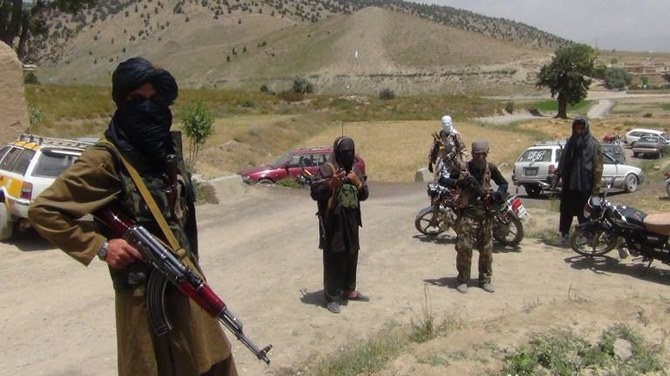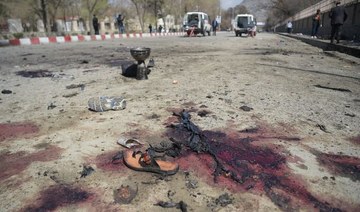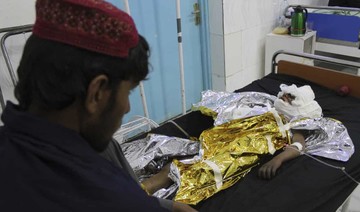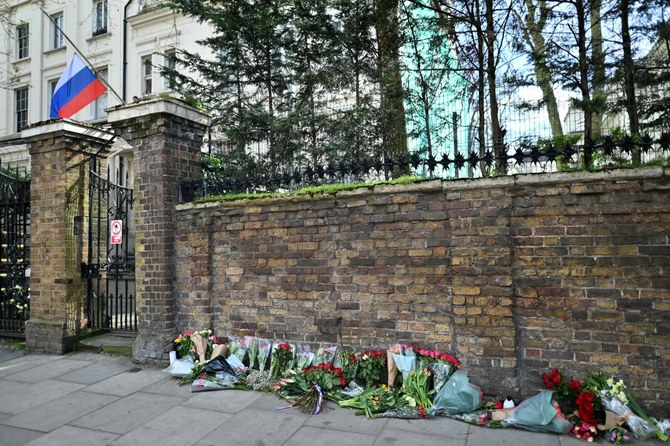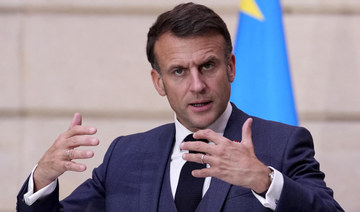KABUL: Scores of Afghan troops have died in Taliban attacks, officials said Monday, even as peace talks continue to resolve the decades-old conflict.
Violence in the south concentrated on the Sangin and Marjah districts of Helmand province, where more than 80 army and police personnel have died since Saturday, lawmakers from the province told Arab News.
There have been devastating attacks this month in Afghanistan, with the Taliban targeting celebrations and festivals as well as military and law enforcement personnel.
“Unfortunately, the troop losses are huge. Some say over 80 have died,” MP Nimat Ghafari from Helmand told Arab News. “The Taliban want to show their presence and strength by increasing their attacks.”
Senator Hashim Alokozai said 65 troops died on Saturday in Sangin, while another 17 were killed in Marjah.
Omar Zwak, a spokesman for Helmand’s governor, said the Taliban had mostly attacked government troops stationed at outposts. He said the militants could not seize any territory and that they too had suffered “huge” casualties, mostly in drone air strikes.
He could not give an exact death toll, but told Arab News that “dozens of security forces were martyred.”
A defense ministry spokesman in Kabul refused to comment about the Taliban attacks and reported casualties, the highest for months in a single province.
Ghafari said fighting continued on Monday in parts of Sangin, with the government relying on drones to hit Taliban sites as it was tough to dispatch troops on the ground.
Earlier this month Washington’s special envoy Zalmay Khalilzad and the Taliban held peace talks in Qatar, with Afghan President Ashraf Ghani’s government sidelined from the sessions at the militants’ behest.
Khalilzad has been urging the Taliban to declare a cease-fire, something the insurgents are refusing to do.
With winter gone, the Taliban has also increased its attacks in the northern and northwestern provinces, residents said. Spring is the traditional fighting season for the insurgents.
The focus of the attacks has been the Qaisar district of Faryab province in the country’s northwest. Lawmakers from the province said several thousand families have been forced to leave their homes because of Taliban strikes and the intensification of fighting.
“Families have ended up in mosques, schools or rented houses. They live on scanty aid from the government and people,” MP Fatehullah Qaisari told Arab News.
Analyst Fazl Rahman Orya said the rise of Taliban attacks, and the increase of troop casualties, showed the government lacked the management and military capability for deploying troops and protecting them.
“The Taliban has not announced its spring offensive while the government has launched its offensive, named Khalid, but still the Taliban have the upper hand militarily,” he told Arab News. “Whoever has the upper hand in the war front will be able to speak from a position of strength and can impose its conditions on the other side easily.”
Also on Monday, the UN confirmed that 13 civilians had died in US air strikes in northern Kunduz province.
“The mission expresses serious concern that initial fact-finding indicates that 10 of those killed were children, part of the same extended family whom were displaced by fighting elsewhere in the country,” it said in a statement.



